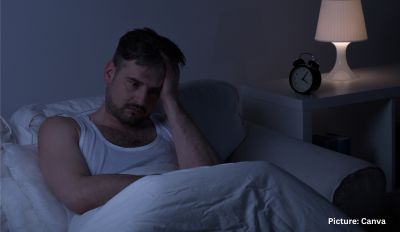In a study released this week by the American Psychological Association (APA), psychologists nationwide have highlighted the persistent challenges faced by their patients, revealing that symptoms are escalating, necessitating extended treatment periods for the third consecutive year. The annual survey, initiated by the APA in 2020 to assess the repercussions of the COVID-19 pandemic on practicing psychologists, emphasizes the growing demand for mental health services.
According to the survey, a majority of psychologists have noted a surge in individuals seeking mental health care in the current year, exacerbating the already lengthy waitlists. An alarming 56% of respondents indicated that they had no available slots for new patients. For those managing waitlists, the average waiting period extended beyond three months, and nearly 40% acknowledged an expansion of their waitlists over the past year.
Psychologist Vaile Wright, the Senior Director of Health Care Innovation at the APA, expressed concern about the unsustainable situation, stating, “We continue to see incredibly high demand for mental health services and an incredibly limited supply. This is not a sustainable solution to addressing the mental health crisis in this country.”
The survey findings also shed light on a notable increase in the number of individuals seeking assistance for specific mental health issues, particularly anxiety disorders, depression, trauma, and stress-related disorders such as post-traumatic stress disorder (PTSD), sleep disturbances, and addiction. Over half of the psychologists observed a lengthening of the duration for which patients required treatment.
Wright attributes these lingering mental health challenges to the enduring impact of the pandemic. She explains, “I think there are a variety of ways that individuals experienced trauma during the pandemic,” citing the loss of loved ones, associated grief, personal sickness, and the consequences of hospitalizations. Additionally, pandemic-induced changes to personal lives, encompassing alterations in social interactions, employment circumstances, and the ability to care for loved ones, have contributed to heightened stress levels.
The repercussions of these stressors often manifest after the initial traumas and stresses have subsided. Wright notes, “It’s when things actually start to quiet down that the impacts of all that we’ve gone through, all that stress, actually start to hit us.”
Furthermore, mental health care providers themselves have grappled with significant stress since the pandemic’s onset. Adapting rapidly to virtual platforms and coping with increased care demands have added to the strain. Psychologist Mary Alvord, founder of Alvord, Baker & Associates, a private practice in Chevy Chase and Rockville, Md., acknowledges the challenges, stating, “It’s been just very difficult the last number of years, first pivoting to virtual and now pivoting back to accommodation of in-person and hybrid.”
Alvord notes changes in patient preferences, with children increasingly requesting in-person sessions, while adults prefer virtual meetings after one or two initial in-person appointments.
The survey exposed the toll on mental health care providers, with 36% of psychologists admitting to feeling burned out. Although slightly lower than the 2021 peak of 41%, the report underscores the substantial number of practitioners struggling to meet the demands of their profession. However, a positive aspect revealed in the survey is that two-thirds of psychologists actively practice self-care to combat work pressures and burnout, with nearly half relying on peer support to enhance their well-being.
While not part of the survey, Alvord attests to the significance of peer support in managing stress. “We have peer consult groups throughout the week, and this is where we really support one another,” she reveals. Personally, she emphasizes physical activity, walking 3 to 5 miles a day, as a crucial means of stress relief.











